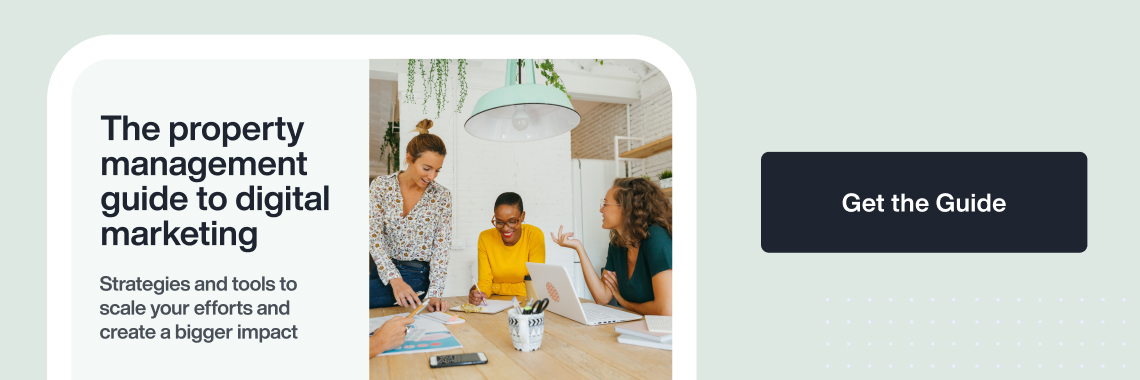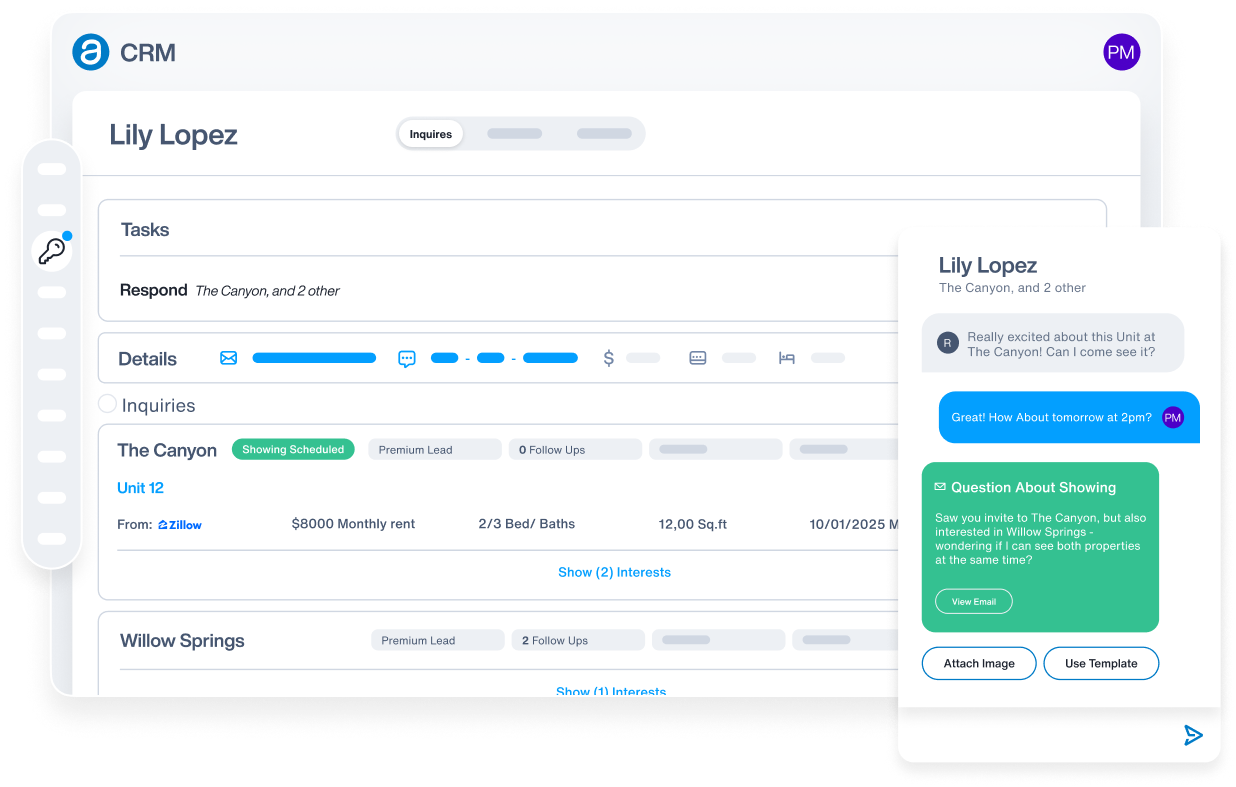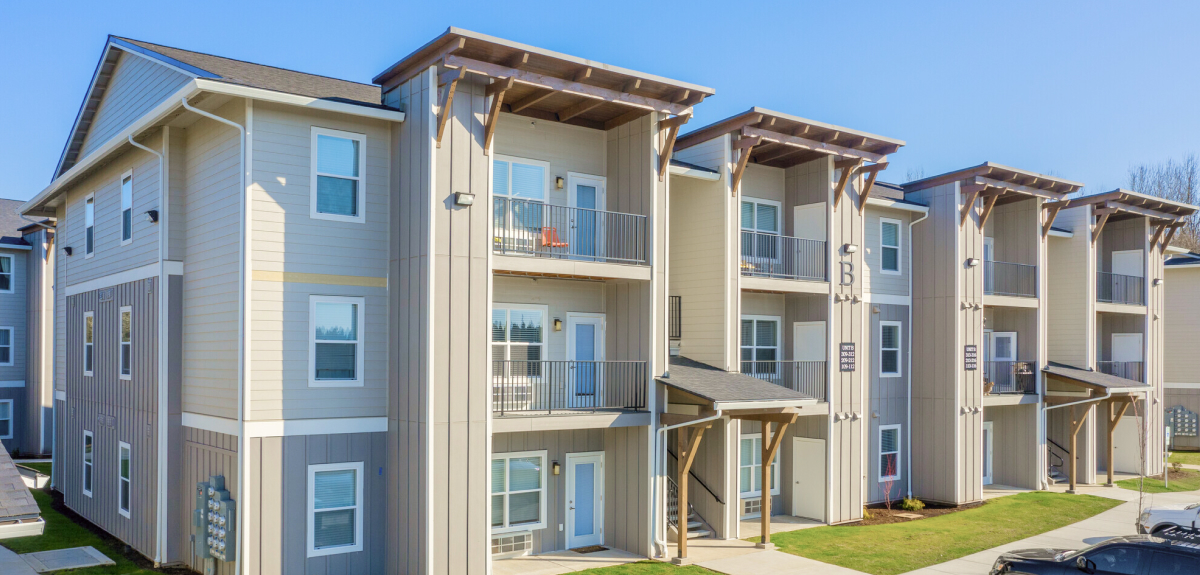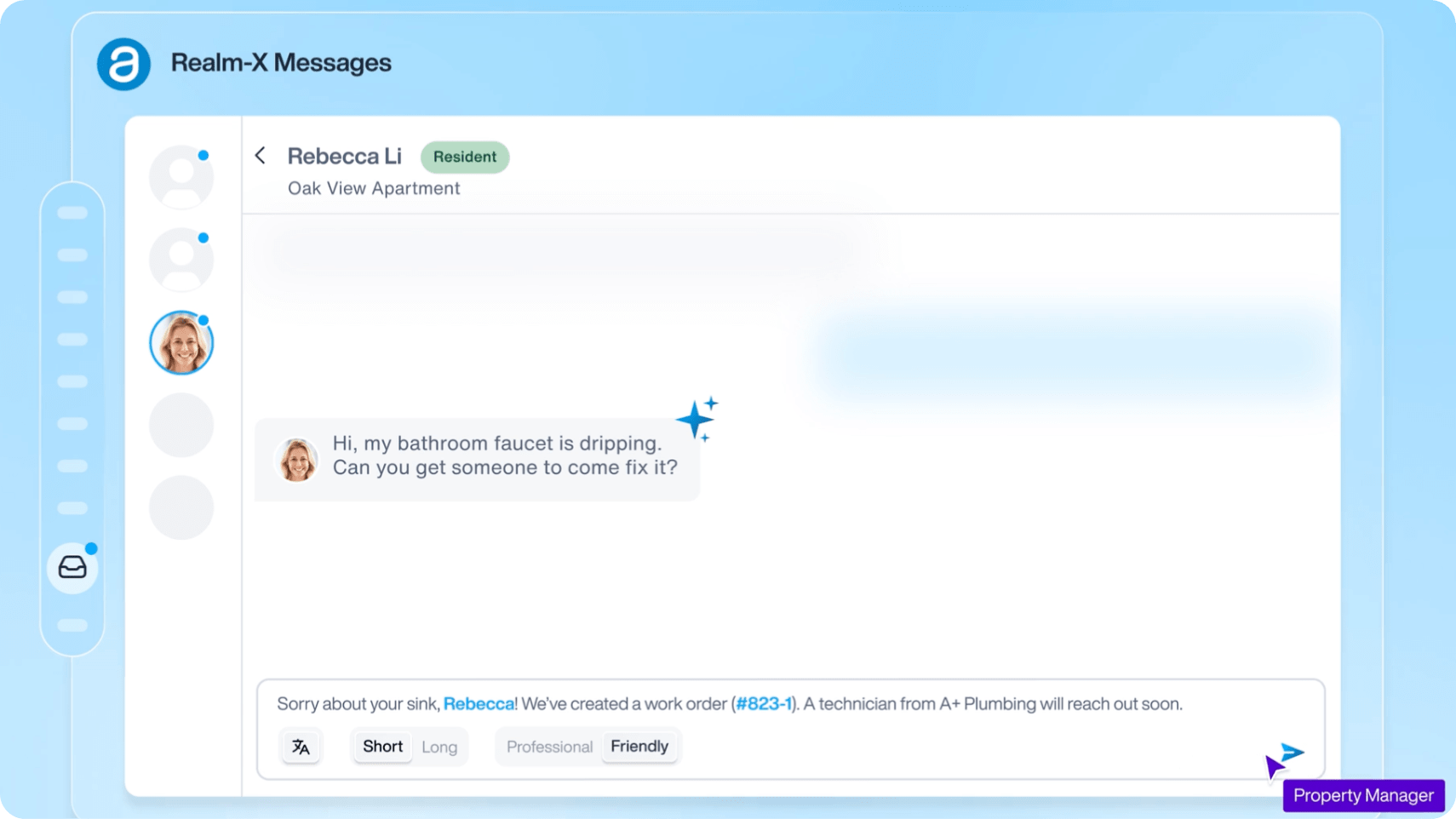Published on August 31st, 2022
By Marc Frenkiel
To kick off a brand-new season of The Top Floor, we spoke with Demetri Themelis, Co-Founder & CEO of Knock®, a leading performance management platform and CRM for multifamily property owners and managers, about the importance of a solid CRM strategy in your property management business.
But in addition to the major benefits that CRM technology offers for your business as a whole, Demetri also explained why having a well-defined CRM strategy also offers major advantages for members of your leasing team. Not only can it optimize their day to day tasks, it even provides a strong foundation for performance measurement and professional development opportunities.
In this discussion, Demetri breaks down the top reasons why all leasing teams should use a CRM tool, what the future of customer relationship management looks like, and how using the right tools helps leasing agents make better data-driven decisions.
Keep reading to learn more, or tune in to the full podcast here.
What is CRM?
Customer relationship management is a combination of processes and technology to manage all interactions between your company and customers.
Demetri highlights that it’s not a question of whether you need a CRM system – everyone already has some form of CRM in place today. It’s more about how you manage customers.
You can do it all with pen and paper, but is that the most efficient way to do it? Not really. And if you’re not using a system that’s highly efficient, then your leasing agents are wasting valuable time that they could instead be using to connect with renters.
Although companies around the world have been relying on CRM technology and seeing success with it for decades, the multifamily industry is still on the path to fully embracing and realizing the advantages of CRM platforms.
The benefits of using a modern CRM tool
Using a modern CRM tool isn’t just about keeping up with the competition. There are real and tangible benefits for everyone on the team.
As Demetri describes it, “everybody’s a winner” when it comes to using CRM software. Here are four key ways a good CRM tool can help your business.
Improves connection with renters
The key to improving the renter experience is fast, frequent, and high-quality communication.
A good CRM tool can help to support a renter throughout their entire lifecycle – all the way from searching and researching to eventually completing an application and moving in. On top of that, a CRM can help you manage renewals and notice periods for when a renter eventually moves out.
Demetri says that an omni-channel approach to communication is ideal. Not everyone likes using phones, so if you can add options such as emails, texts, live chats, and social media messaging, you can meet prospects where they are.
In addition to the obvious advantages for renters (no one likes having to repeat the same information multiple times), this also makes it easier for leasing agents to focus on what matters. Rather than keeping track of information gathered across many different touchpoints, they can instead focus their attention towards creating a personal connection with each prospective renter. With more time spent on tasks they are uniquely skilled at, it creates a more engaging and rewarding work environment, as Demetri explains:
“Automation can absolutely help to take the more menial aspects of a job and sort of unenjoyable aspects of leasing jobs and automate them and give those folks the opportunity to focus on higher value added responsibilities that will certainly help their careers grow.”
Boosts retention rates
Regardless or how effective your lease renewal efforts are today, some degree of resident turnover is always expected. But instead of just measuring success on lost renewals, Demetri explains how property managers should shift their perspective to the realization that a significant percent of next year’s revenue already lives in your properties as existing renters.
To perform well next year, you shouldn’t just focus on filling the gap left by people who leave. You also need to make sure you’re providing the best possible experience for your current residents.
Demetri advises property managers to prioritize fast and consistent communication with current renters – just as you would with prospects. That way, you can improve retention rates and reduce the cost of finding new renters each year.
Higher retention rates means that your team has to spend less time, energy, and money chasing potential leads and relying so much on advertising to meet profit targets each year. As Demetri explains:
“To perform next year, it’s just as important to be engaging in providing a great customer experience with your existing renters, as it is to be kind of responsive and engaging and consistent with prospective renters.”
Helps make data-driven decisions
One of the biggest benefits of using modern CRM tools is the sheer amount of data you can pull from them. There’s little room for uncertainty in a competitive market, and by using data, leasing teams can stay ahead of the game.
Your data might show blockages in your pipeline and help you identify the source of the problem, whether it’s lead generation, conversion, or retention. You can then zero-in on solving that problem before it disrupts too much of your wider business.
This helps you reduce a significant amount of time in diagnosing problems and performing trial-and-error tests to find the root cause. Data lays it all out plainly.
Not only is this a benefit for leasing companies as a whole, it’s also a plus for individual leasing agents. With the ability to make data-driven decisions on what’s working versus what’s not, leasing agents can grow their skills, expertise, and therefore open great career opportunities in the future.
“There’s a real benefit in learning yourself how to make data-driven decisions on what’s working and what’s not working. That can help lead to better outcomes. I think it teaches somebody who’s an individual contributor the power of making data-driven decisions, which is, of course, a really fundamental skill set if you want to get into management and overseeing a revenue function in your career.”
Accelerates training and skill development
Technology is fantastic, but it only works when your team is trained to use it. This can, of course, be a challenge, especially if you have multiple properties and teams across different states.
The good news is that a CRM can help you centralize processes and training to keep everyone on the same page. That way, you can ensure that everyone’s trained up to the same standard and you can get all the information you need about staff training in one place.
“Training teams to provide great, consistent customer, high quality customer experience for multifamily operators is extremely challenging. The average, not customers, looks something like 55 properties in nine different states. I promise you that these organizations are operating on tight budgets and don’t always have huge robust budgets to recruit and train and have very experienced folks kind of working at the properties.
CRMs are fantastic in that they’re going to act as a forcing function and making sure that the customer experience that you expect is just being delivered, repeatable on a repeatable, consistent, scalable basis without needing a ton of ongoing training, monitoring training and policing from management.
The technology can really take on all of that burden on itself and ensure that there’s, again, a high quality, highly consistent, engaging customer experience delivered across an entire portfolio of assets. I’d say that’s training and reducing the cost of training is a massive benefit to having a great CRM in place.”
How to implement new technologies
Bringing new technology into any business can be a challenge. It has the potential to change everything, and change management is hard for everyone.
But Demetri has a tip for any business in the multifamily world and beyond looking to implement new tech: Don’t just focus on understanding the product itself. Understand the customer service, customer success and implementation side of the business providing the tool. Investing in business tools is all about building a partnership, so look beyond the product and focus on the company you’re partnering with as well.
“certainly you’ve got to have the best product to win, but it’s also sort of one part product, one part partnership.”
For more advice on implementing CRM tools into your property management business, listen to the full podcast episode with Demetri. While you’re at it, download this free guide for expert marketing strategies.










Comments by Marc Frenkiel